Syndicate
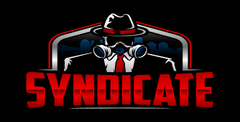
| a game by | Electronic Arts, and Bullfrog Productions |
| Genres: | Shooting Games, Strategy/War |
| Platforms: |
XBox 360,
PC (1993),
|
| Editor Rating: | 8.1/10, based on 10 reviews, 13 reviews are shown |
| User Rating: | 8.4/10 - 5 votes |
| Rate this game: | |
| See also: | First Person Shooter Games, Games Like Blur, Post-Apocalyptic Games, Cyberpunk Games, Jaguar Games, Games Like Metro, Games Like Phantasy Star Online, Syndicate Games |
In the 1990s, isometric strategy and tactical games were all the rage. Without the graphical power of today, games had to use intelligent writing to tell as opposed to show. They needed deep, complex gameplay to keep people coming back for more. And in 1993, popular isometric strategy game Syndicate was released by Bullfrog. It was the first title in the popular Syndicate game series.
Put yourself in the body of a mobster in a dystopian future when the world is run by companies as opposed to governments. You are in control of a major company that intends to become a global player and dominate the entire world. Does the ambition of a game released in 1993, though, manage to shine through with the technical limits of the time?
An outstanding game ahead of its time
Bullfrog done a fine job on many management games, but Syndicate was one of their first major wins. The game puts you in charge of a range of missions where you use a team of cybernetically adjusted special agents to carry out your bidding. They typically need to beat other syndicates, and even the law, across numerous missions. From rescue missions to sabotage and assassinations, just about every mission offers something novel and different.
Over time, you also need to build up taxes through your occupied territories, allowing for you to make money to build up the quality of your infantry. At the time, the game was promoted as the ideal next step in strategy gaming, building on the kind of concepts that would become staples for games like Fallout, X-COM, and even many RPGs to come in the years.
An outstanding take on an ambitious idea
Though the signs of ageing are well and truly clear with this game given it’s close to 30 years old, Syndicate can be played comfortably even today. Its deep real-time tactics force you to be smart with everything you do, and ensures that you look to build up a team of cybernetically enhanced killers with the right blend of skills and weaponry.
As time goes on, you need to get used to managing your team, upgrading their gear, and ensuring that your syndicate continues to build and grow accordingly. The games grotty atmosphere, built around the concept of people being chipped to essentially forget how brutal their environment is helps to set a very particular kind of theme. The game continues to deliver a tough storyline, an engaging plot, and a deep enough commentary on society to feel like a game worth playing.
For a game in the 1990s, it offered enough strategic depth and plot detail to make Syndicate one of the most acclaimed strategy games of the early era. If you like a gritty world packaged with exciting gamplay, be sure to give Syndicate a shot.
Pros
- Excellent story, theme, and world building
- Addictive and deep strategy gameplay loop
- Easy to play, even with the passing of time
Cons
- Controls can be somewhat confusing for newbies
Download Syndicate

System requirements:
- PC compatible
- Operating systems: Windows 10/Windows 8/Windows 7/2000/Vista/WinXP

System requirements:
- PC compatible
- Operating systems: Windows 10/Windows 8/Windows 7/2000/Vista/WinXP

System requirements:
- PC compatible
- Operating systems: Windows 10/Windows 8/Windows 7/2000/Vista/WinXP
- Game modes: Single game mode
Player controls:
- Up, Down, Left, Right - Arrow keys
- Start - Enter (Pause, Menu select, Skip intro, Inventory)
- "A" Gamepad button - Ctrl (usually Jump or Change weapon)
- "B" button - Space (Jump, Fire, Menu select)
- "C" button - Left Shift (Item select)
Use the F12 key to toggle mouse capture / release when using the mouse as a controller.

System requirements:
- PC compatible
- Operating systems: Windows 10/Windows 8/Windows 7/2000/Vista/WinXP
- Pentium II (or equivalent) 266MHz (500MHz recommended), RAM: 64MB (128MB recommended), DirectX v8.0a or later must be installed

System requirements:
- PC compatible
- Operating systems: Windows 10/Windows 8/Windows 7/2000/Vista/WinXP

System requirements:
- PC compatible
- Operating systems: Windows 10/Windows 8/Windows 7/2000/Vista/WinXP
Game Reviews
You rush into a country, guns ablazing, and ready to battle the rival mob to capture their territory. You need a sound strategy, careful planning, and money for powerful weapons and bionic agents. Welcome to Syndicate life.
Seven Deadly Syndicates
On the PC and Macintosh, Syndicate's deep strategy and fluid controls surrounded you. Syndicate on the Genesis retains the CD version's strategy and story line, but it falls a little short in the other departments. Through mission after mission, underground thugs cruise overground to create a stronghold. Once you capture a territory by completing tasks like clearing enemy cyborgs, and putting a hit on a politician's wife, you increase taxes to pay for future missions and more powerful weapons.
The Genesis game's controls are obviously different than the disc versions what used to be a mouse click or key press is now a button combination. Some of these control changes negatively affect game play: Your guns don't target as precisely because you can't pinpoint your target with a mouse, and it's sometimes difficult to maneuver a group of characters between buildings and the screen edge.
ProTips:
- Watch when you cross the street or you'll drag your palls into a collision.
- Read about necessary weapons and tactics before you launch into a territory.
Shot in the Dark
The graphics don't do much to help you track the many small details, such as your radar. The Genesis system's graphical capabilities aren't clear enough for a game that's this intricate. The doom-impending music is crisp and helpful -- it changes with an enemy's appearance, for example.
You can persuade only a limited number of people, so don't waste time with regular citizens. Get police robots on your side, because they're already armed.
Many gamers, however, won't stick around. Syndicate becomes entertaining only after a fairly steep learning curve. It takes a while to understand who you're fighting and then figure out how to get to them without getting drilled by a police drone.
- Be ready with Buttons A and R when things get heavy. The Panic Mode makes your agents very aggressive and smart around enemies.
- Don't overload agents with more than they can carry.
- Stay within your budget but establish a good plan for adding new weapons and modifications.
Missing the Mission
It's not really fair to do a side- by-side comparison of Syndicate with its computer predecessor. Yet the translation could have been a bit more comfy, given the game-play potential of the Genesis system. Sadly, Syndicate didn't push all the right buttons.
You didn't have to play Syndicate for long before you realised it was no ordinary game. Here was a game with a dangerous edge at a time when the industry was going through one of its 'console' stages. Syndicate's blend of ultraviolent action mixed with cunning team-based strategy in a living, isometric 3D future was a billion worlds away from the proliferation of cutesy 2D platform games that plagued the Super Nintendo and the Sega Megadrive.
Syndicate had balls of steel: a techno nightmare where all-powerful corporations ruled an angry urban populace and fought for chunks of the planet. You controlled four faceless agents on an adrenalin-fuelled rampage through level after burning level of industrial cityscapes. Flamethrowers. Uzis and rocket launchers were your corporate tools, although occasionally you could persuade someone to join your company using your trusty 'persuadertron'. Generally though, you just went postal.
The cyberpunk influence was obvious. Genetically enhanced cyber-agents, upgradeable body parts, high-tech weapons R&D, corporate governments -the themes are all-too common now, but at the time there was nothing similar out there. Games like Monkey Island 2, Dune 2 and ultimately Doom were the office games of choice, but they bore no real resemblance to what was being forged in downtown Guildford.
As Russell Shaw. Syndicate's sound designer, recalls: "The whole William Gibson thing played its part along with films like Terminator, Predator etc. I remember the team wanting the minigun to sound exactly like the minigun in Predator and there was a heavy bias towards making the music 'John Carpenteresque'."
In the end though, it was something far simpler that led to the final idea: good old-fashioned beer and pizza. Sean Cooper, designer and programmer of Syndicate fondly recalls those Stella and mozzarella-fuelled creative enzymes...
"Peter Molyneux, Les Edgar, Alex Trowers, Glenn Corpes, Gary Carr and I were at the pub (1991). We had finished the Promised Lands expansion disk for Populous, and Powermonger was well on the way. I was thinking about what I could be doing next, and had always wanted to do a real-time strategy game (I'd always liked the squad-based tactics of Laser Squad). So a team-based (eight-men) game in a city was mentioned. We debated and eventually decided that's exactly what we we're going to do."
Fellow designer Alex Trowers recalls that it wasn't long before they cobbled together something resembling lunatics with guns.
Fast Food Frenzy
"After several trips to the pub and Pizza Hut we had a rudimentary engine and the ability to move the blue boxes around. Pretty soon the blue boxes were firing blue boxes at the other blue boxes causing them to turn into blue boxes and die. This was generally considered to be fun, especially when blue boxes hid in alleyways and ambushed the others."
Another Bullfrog excited about the whole idea was a designer by the name of Peter Molyneux. "Originally we called the game Blue and Orange Bloke (BOB). The original concept was the idea of this person running around a living city (an ambition we had always had). We had lots of brainstorming sessions and came up with the idea that you could power up this bloke into a group of blokes with the use of three different drugs and play them as a team."
In keeping with this 'living, breathing world' philosophy of the other Bullfrog titles, the team decided to model cities with all the inhabitants going about their everyday business.
"Another key thing was the player's ability to interact with those people how he saw fit," explains Alex. "Granted, normally this would just involve killing them but we gave the player the 'choice' (and a fearsome arsenal...)."
Eventually, after months of testing BOB on the Bullfrog office network using multiplayer code from Populous, Syndicate's gameplay emerged. Ultimately, virtually every design feature that made it into the finished product came about by playing the multiplayer game, often until way into the wee small hours and somebody saying "Wouldn't it be cool if..."
The drug' related aspect of the gameplay was of course one of these 'cool' thoughts. By injecting your augmented agents (who in fact were 'marketing directors' for the corporation you worked for) with brightly coloured liquids, they would become more effective killers; yet, this was never a deliberate plan to cause controversy.
Flying High
"I was young (20), naive and didn't even think about the consequences of drugs in games," reminisces Sean. "The game was really fun to play and we just kept adding new fun things to the experience. We got stuck trying to devise how to explain High Adrenalin, High Perception and Higher Intelligence - and came down to technology or drugs? Technology was geeky and drugs were cool."
Alex meanwhile, wonders whether they were even drugs at all: "Is adrenalin a drug? I thought it was a hormone... Besides, you could torch entire crowds of people and they would run around on fire, screaming. Now that was cool.'' Apparently, one early version of the game even featured women pushing prams who could be burnt alive with a flamethrower. All things considered, drugs were pretty tame.
"It's not as though we were using a drug like heroin either," confirms Peter. "It's more like the drugs that are allegedly given to troops going onto the front line."
Russell agrees. "For me it was more about cybernetics and mind control. I got a great kick from updating limbs and weaponry In fact, the stringency of certain sales territones meant that we were more worried about leaving blood patches on the ground where agents and civilians had been killed than we were about drug-related problems." In fairness, the whole way in which Syndicate was developed pretty much proves that nothing was ever planned. "The game was entirely made up as we went along," Alex concedes. "One night, Sean and I decided to replace the Gauss Gun (initially designed as an EMP weapon) with a rocket launcher - instant legendary weapon status. Often the turnaround between someone uttering a 'wouldn't it be cool if...' and a new version appearing on the server with that feature implemented was as little as 15 minutes."
Sean remembers that because people would literally queue up to test the game on the multiplayer network, there were actually surprisingly few development problems. "Nothing really held us up, as I was constantly tuning the gameplay with my friends. Every time they said 'That's shit', I'd change the game to get their response to 'That's great'."
Organised Chaos
Every game has to have its little hitch at some point though, and Peter admits there were occasional differences. "The greatest artistic difference I remember (although I will concede that Sean Cooper and myself would argue endlessly about which game features should stay, be taken out and be added depending on who had won the last multiplayer match) is that some people wanted an agent to drop his gun when he was killed or injured, which meant the player had to scrabble around to pick it up again. I shrieked and screamed like a school girl until I got my way so that agents did not drop their guns."
Meanwhile Mr Cooper was trashing the office. "Sean has (or had at the time) one of the most outrageous tempers I'd ever witnessed." reveals Russell. "I can remember waste paper baskets flying and desks being kicked - all that sort of thing. Remarkably though, everyone knew to give Sean a wide berth if he was in that kind of mood. In an hour or so he would forget that anything had ever happened!"
Revolting
Finally, after 18 months, the chaotic beauty of developing Syndicate was over. The game was released and went straight to the top of the charts and awards were duly scooped. The story, the original team-based gameplay, the weapons, the multiplayer LAN option, the freedom -it all shone through. The queues of testers had all played their part.
Like most of Bullfrog's hits, Syndicate soon spawned an add-on pack -American Revolt. This hardcore expansion saw your assassins/marketing department take on the combined corporate forces of North and South America. And it was hard - very hard. One of the opening moments saw you wiped out within seconds if you didn't instantly rally your forces, equip exactly the right weapons and make a highly organised dash for a seemingly impossible point of safety. Despite its popularity, certain members of the team are nevertheless embarrassed by it.
"I'd just like to apologise for the American Revolt add-on." reveals Alex. "I was being badgered by Adam at Ultima (the local game shop) about how easy Syndicate was. Consequently I might have made the data disk a shade on the hard side..."
Sean on the other hand is none too complimentary about the 1996 sequel. Syndicate Wars: "The sequel introduced 3D and blowing up buildings and not really a lot else. It was just the same experience inside it and it hadn't really moved on."
Harsh maybe, but in all fairness Syndicate Wars probably wasn't as slick as its predecessor, and the endless blurb before each mission was a bit of a headache.
Grand Cyberpunk
Syndicate eventually found its way onto the Super Nintendo, Jaguar and Megadrive; a strange turn of events when it once stood so proudly aside from them. Still, it proved one thing: Syndicate had changed the gaming world.
Look around you today. If a game like GTA 3 is not a direct descendant in terms of gameplay, it certainly draws inspiration from philosophies such as giving the player a living 3D environment and the freedom to do what he wants. Even more significantly. Syndicate was one of the first ever squad-based tactical action games, so it's not hard to draw a line of influence to today's more sophisticated first-person affairs. And then there are games like Fallout; open-ended, alternate reality RPG's with a distinct taste for violence. "I think our context-sensitive mouse cursor was probably a first too," adds Alex, almost as an afterthought.
As if to cement its legendary status, Sean, Alex and Russell all agree that Syndicate is the most important game they have ever worked on. Only Peter disagrees on this, but there's still room for it to sneak in at "third or fourth" on his 'most important' list, which is pretty good considering what 's come out of Peter's gaming loins. For Russell the experience confirmed his love of games. "Working on Syndicate made me realise that this was the industry for me. And that Bullfrog was the company for me. Being my first game I had no preconceptions about the industry or the making of games in general. I'm still doing the same now as I was ten years ago and I still feel thankful for being a part of the industry."
Corporate Fightback
So, with the fond memories everyone apparently has for Syndicate, maybe we could yet see a continuation of the series?
"I'd love to do another version of it with an updated interface, more weapons, destroyable buildings, multiplayer, improved Al and more eye candy than you can shake a stick at," enthuses Alex. Even Peter ponders the possibilities. "Originally we had this idea that you could kill puppy dogs - I'd put that back in now. Although when I think about it there are similarities between Syndicate and BC, which is being developed for Xbox by Intrepid, one of the Lionhead satellite studios. It's a game set in a simulated prehistoric world and you control a group of humans, so perhaps in one sense we already are revisiting it." And let's not forget the sound man...
"I could produce a full-quality Hollywood' style soundtrack with rich, ambient cityscapes, hundreds of sound samples and as much speech as we need," coos Russell. "That said, who's to say that with film quality sound and music the game wouldn't lose a certain something that the original had? The limitations of the PC platform at the time made Syndicate the game it is. People love it for what it is and not for what it could have been."
In any case, with the original team fragmented and indulging themselves in new found loves, a further sequel looks distinctly remote. Then again, there are more than enough trade shows and development seminars for old friends to bump into each other. Who knows, after a few beers and a pizza anything can happen.
It's the future. Huge multinational organisations, like What She Wants and Alfs Mini-Mart dominate the globe; one each based in Europe, America and the Far East. The European corporation invents chip, a mind-bending implant that allows the downtrodden citizens to believe they're having a good time, even though they're actually living lives of unalloyed misery (imagine a futuristic Nine O'clock News). Control of the chips means control of the people, so naturally the three mega-corps wipe each other out fighting for it. This allows the crime syndicates to move in, taking over what's left.
Crime pays
You're a young executive in a crime syndicate whose aim, thanks to taking part in team sports at school, is to take over the world. The world is divided into territories; you have to acquire them by sending your collection of killer-cyborgs into them and performing a series of missions that resemble the lively bits from a Quentin Tarantino film. Once you own a territory, you tax it to within an inch of its life, remind it how much worse it would be under a Labour government, and use the money to finance the next outrage. There are loads of weapons to develop and many ways to improve your cyborgs' powers, by flying in the face of Olympian ideals and giving them cybernetic limbs. It's a thoroughly engaging game, albeit one that right-thinking people are expected to make embarrassed qualifying remarks about. ("Well, yes, I know I just pan-fried that chap's head with a flamethrower, but it's satirical....")
Americans are revolting
In American Revolt, an extra scenario, the pesky citizens of North and South America have risen up against the Syndicates, and you have to get in there and Gauss-gun your way through another 21 missions. This time it's considerably more difficult: enemy agents are faster; solo missions mean that your agents have to be pretty damn ninjascopic; the production of Serious Weapons is essential to survival, and it also helps if you happen to have the reflexes of a jittery mongoose.
New weapons
There's a new weapon for when your agents get in a tight spot - Air Strikes. It's extremely expensive to develop and use but it's worth it for the Expressionist film-makers among you, who will enjoy the strange new cityscapes that result, with their nod in the direction of the sets of The Cabinet Of Doctor Caligari.
Network play
The other added bonus is the network game, which allows up to eight humans to try to kill each other over a network. There are 10 missions, and the only objective is to be the last one left alive. There's a new weapon for this, too - the Clone Shield enables your.
Do you ever find yourself enjoying something that, when you think about it. you really shouldn't? Something that, on reflection, is completely amoral and gratuitous, but great fun nonetheless? (Er, are you sure we want to know what you're talking about? Ed.) Well, that depends - I'm talking about Syndicate. (Thank God. I thought you were going to start on about the 'whipped cream' incident again. Ed.)
A short history lesson
In the near future the multi-national corporations gain so much power and wealth that they effectively become world governments. Eventually there are only three left - one based in America, one in Europe and one in the Far East. Then the European corp made a huge breakthrough, introducing chip. Implanted in the neck, chip allowed people control over their perceptions, making them blissfully oblivious to the misery of their lives. Millions were sold with the slogan: 'Why change your world when you can change your mind'. Control of chip technology ultimately meant control of the people. Inevitably, the mega-corps went to war. Human nature, eh?
The world's crime syndicates saw their chance. Engrossed in their efforts to destroy their competitors, the corps were open to infiltration. Using money from pirate chip technology and good old fashioned murder, the syndicates soon controlled the remnants of the corps, shattered by the war.
Hostile take-over
You are a young executive in a small European syndicate. Your aim is to take over the territories controlled by the other seven syndicates, until your corporation alone controls the entire world. There's nothing like a healthy dose of ambition, after all, is there?
But how do you go about taking over a territory controlled by a competitor? Better advertising? Huge media blitzes? Lower pricing? Nah. You use a team of agents, controlled via the chip circuitry imbedded in their necks, to perform destabilising missions that usually involve an enormous amount of gratuitous violence.
Business as usual
The world of Syndicate is split into just over 50 territories. As you conquer territories adjacent areas become available for take-over attempts. Once a territory is under your control you can tax the population to provide funding for further missions, but if the rate is set too high the people will eventually rebel and you'll have to send in your agents to 'pacify' them. Once you have selected the area you are interested in acquiring you are given a briefing on the mission, and can see a rough map of the city where it will take place. The briefing info and map can both be increased in accuracy by paying for espionage reports (there are few things as useful as a good spy).
If you accept the mission you go to the agent selection screen. Your team can consist of between one and four agents, and each can be assigned various cybernetic modifications (see 'We Have The Technology') and equipped with assorted bits of equipment and. of course, huge guns (see 'Contractual Enforcement' and 'Designer Accessories'). From this screen you can also access your r&d department and decide on the area for them to work on and assign funding - the more money there is available, the shorter the time taken to develop a new weapon, piece of equipment or modification.
When you're happy with your band you enter the mission area. This is viewed from an isometric perspective supplied by your airship that floats above the city, masquerading as an advertising gimmick.
In the bottom left is an overhead scan of the area surrounding the current agent. In the top right there are icons for each of your mindless psychos. The vertical white bar represents their health - when it runs out. so does their life. Below the icon of each agent are their current api levels (see 'Better Killing Through Chemistry'). Beneath these is a row of icons representing the equipment carried by the currently selected agent. Control of your agents is simple. Select the agent you want by left clicking on either the icon or the actual agent in the main view (or all of them as a group using the cunningly named 'group' icon) and left click on the area of the city you want them to move to. Right clicking on an agent's icon moves your view to where they are. You can use either the main view or the scanner to direct movement. Equipment is selected by left clicking on its icon. Most items are automatically used when selected. Selected guns are fired by aiming with the cursor and right clicking.
Audit time
Syndicate's graphics and sound are uniformly excellent. The graphics are clear and atmospheric, the people are incredibly well animated considering their size, and a lot of thought has obviously gone into the look and feel of the game, from the excellent explosions to the amazing intro sequence. The sound, too. is very atmospheric, and this is one of the few games where the music can be turned off but I left it on. Right, now that's out of the way. onto the game itself. Syndicate plays very well. It's relatively easy to get to grips with, but takes a bit of time to master. Once control of your agents and their api levels are understood it allows for many different techniques.
Where the game succeeds most is in its flexibility and its feel. Most of the missions can be tackled in various different ways, allowing for many different approaches. For example, in one mission you have to assassinate someone who is initially in a house. You could blaze in the front door, mow down the guards and kill the target. You could set yourself up on a roof-top and wait for the target to leave the house, then kill her with a well aimed sniper shot and be away before the guards could react. Or you could sneak in the back door, drop a time bomb and run like hell. It's up to you. And the game 'feels' brilliant. It's hard to explain, but you quickly become totally absorbed in the proceedings. And the enjoyment to be had from striding through a city, casually mowing down anyone who gets in your way and blowing up the odd car if you get bored is actually quite worrying. Syndicate is a game with no moral qualms, and no real good or bad - you're on one side, everyone else is on the other, it's as simple as that.
Corporate paradise?
Well, not quite. The only real problem with Syndicate lies in its difficulty. The game initially adjusts itself to your playing ability for the first missions, and then after a while just lets you have it. Unfortunately I didn't find it quite hard enough. Part of the problem lies with your ability to save after every mission, and part of it with the r&d system. The saving means that you can keep trying a mission until you crack it, and reload if you don't, and the r&d seems to give you all the technology too quickly. Also, although I had territories revolt.
I never lost one I'd captured to one of the computer controlled opponents. They seem to attack each other, as the map changes with time, but they never grab one of yours. What makes this particularly sad is that Bullfrog actually made the game easier, as they thought it was too hard and the computer corps too nasty.
But Syndicate is still an utterly smart game, and if you play it without constantly saving, the above criticism can be ignored. It is the only criticism I can make, and it may just be because I'm such a ninja gamesplayer.
Better Killing Through Chemistry
The responses of your agents can be modified at any time by manipulating their CHIP implants to inject them with three different drugs. These drugs control Adrenalin, Perception and Intelligence (API) levels. By administering different amounts of these drugs your agents can be tailored to the job at hand.
ADRENALIN: An agent's Adrenalin level controls his speed of movement and reaction. I suppose it's a bit like an injection of incredibly strong coffee.
PERCEPTION: The perception drug increases the range at which agents become aware of threats and their firing accuracy.
INTELLIGENCE: Intelligence drug injections make the agent more... er, intelligent. (I can see you're pushing yourself. Ed.) Intelligent agents have more independence when left on their own.
Unfortunately you can't just whack all the levels to maximum and forget about them. Firstly the doses wear off after a while. Secondly, after a big dose the agent's tolerance increases, and further doses have less effect. On top of that, agents with maximum API levels tend to walk around blowing every baddie they see to bits, which can limit your options for stealth.
The trick to API control is to only use the drugs you need, and at other times lower the dose to lower tolerance. A sniper just needs Perception. Haring across a city just needs Adrenalin, and so on. Of course, when the doo-doo hits the fan, just whack 'em all up and leave 'em to it.
I'm sure that all you true, diehard gamers out there are already familiar with Syndicate. If not, shame on you! Just kidding, but listen up.
Syndicate is an action/strategy game where you control a group of four Corporate Agents through a series of missions that will grant you control over the world. The variety of missions you will embark on will vary from assassinations to converting enemy agents. As you gain more power, you'll be able to upgrade your men and equipment.
Syndicate was hot on the computer, and the Sega CD version looks just as sizzling.
- Manufacturer: Atari
- Machine: Jaguar
Everything you ever heard about major corporations being blood-thirsty is true and this game proves it! Kill your enemies (and hapless innocents) with guns and bombs - the effects are killer! Possibly the best game made for the Jaguar!
- Manufacturer: Electronic Arts
- Machine: Genesis
Gangsters take over the world of the future and duke it out with hit squads in this futuristic action/strategy game. The overall challenge is difficult, but mainly because the game is hard to control. Undo like playing with toy soldiers!
- Genre: strategy
- Players: 1
- Publisher: Atary
- Developer: Ocean/Bullfrog
So you say you wanna run the world just like Marlon Brando ran his family in "The Godfather"? You know, lots of guns and violence and car chases? Well, buddy, have I got a game for you!
Take control of a team made up of bio-enhanced clones who take the latest weaponry your scientists have come up with, and blast through mission after mission with the final goal of conquering the world. Missions range from simple assassination sorties to the more difficult captures in which your team has to electronically enslave important personnel and escort them from the site. Control is hard to get used to, but after a few missions it becomes invisible and it's hard to imagine it any other way.
Game effects are impressive and quick, the small bodies thrown about by shotgun blasts like ragdolls, bleeding in small pools afterwards. Not a game for the faint of heart, Syndicate is full of terminal scenes, enemies (and innocents) falling apart in explosions and staggering around in flames when they get too close to a flamethrower.
Although it's hard to learn, and continues to be difficult (especially in the higher levels) as the game progresses, Syndicate is a strategy test for anyone who likes plotting or planning through a major siege. It's one of the best Jaguar games yet released.
- Graphics: 7
- Gameplay: 8
- Innovation: 9
- Music & Sound FX: 6
- Replay Value: 8
- Manufacturer: Domark
- Machine: Sega CD
This action-packed adventure has already made its way to the Genesis and Jaguar, and now is plotting a takeover of Sega CD. Lead up to eight cyborg agents into the dark world of espionage. With over 50 missions and 50 cities, Syndicate tor Sega CD promises to be even better than the Genesis version. When this CD comes in we'll sing like a canary, and tell you if this game is worth torturing or just killing.
- Manufacturer: Ocean
Originally an ultra-cool PC game, Syndicate's Genesis version was adequate, but nothing near the original. The Jaguar version looks to be better than the Genesis and not quite as good as the PC. Either way, Jaguar strategy fans should be stoked about the arrival of the first strategy-type game for the system.
- Machine: Genesis
- Manufacturer: Electronic Arts.
Gangsters take over the world of the future and duke it out with hit squads in this futuristic action/strategy game. The overall challenge is difficult, but mainly because the game is hard to control. Kinda like playing with toy soldiers!
Syndicate offers dense strategy combined with extensive shoot- em-up action. This potent mix isn't for everyone, but sophisticated action fans should have a good time.
Intricate Syndicate
As on the PC, Mac, and Genesis, the SNES version starts you with a global map of international intrigue and a four-person team of agents. The missions involve lots of walking around and shooting, a la True Lies. But Syndicate's strategy elements, which require you to raise taxes in conquered countries and carefully evaluate each of your agents, add more depth than True Lies' single-minded simplicity ever dreamed of.
The complex controls require a thorough read of the manual. Once you learn them, they're fairly effective, but they can be cumbersome when you have to switch protagonists or weapons in the heat of battle.
Even worse, targeting isn't as accurate as you'd like.
SynCity
The sounds and graphics are both above average. The sounds are especially effective with moody, atmospheric music and distant gunfire that warns you of impending action. The squashed graphics, though colorful, don't always help you in your detailed quest. That tiny radar screen looks like a postage stamp on your TV.
Young gamers or those with little patience should stay away because Syndicate isn't easy. But advanced gamers and fens of the computer versions will get a satisfying bang out of the SNES game. Syndicate is a thinking man's shoot-em-up game.
ProTips;
- Your agents can carry a limited number of weapons, so don't overload them.
- Inside buildings, you can't see your agent or the people around you. Don't fire randomly because you might accidentally hit citizens.
- Be careful crossing streets. Even If you make it, a fast vehicle might take out the friends trailing you.
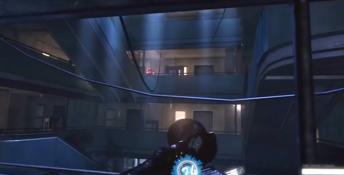
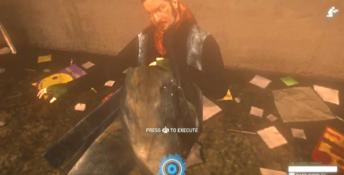

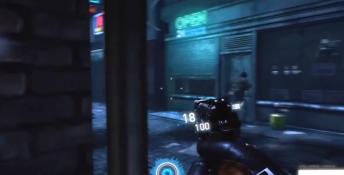
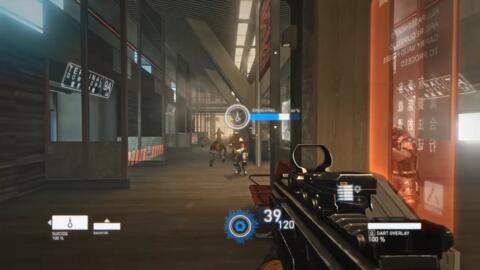
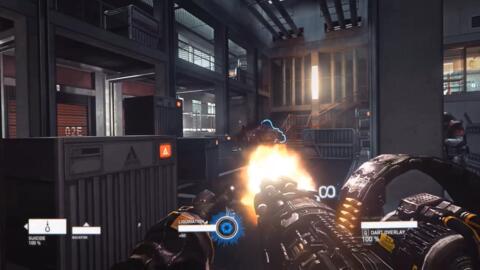

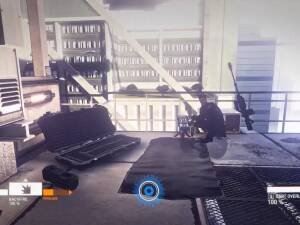

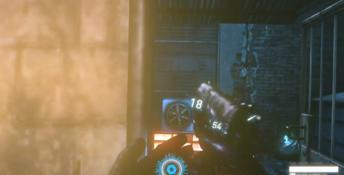
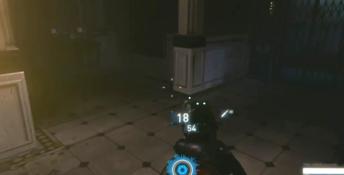
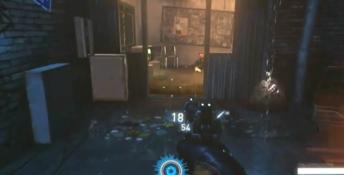
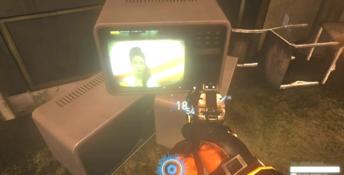

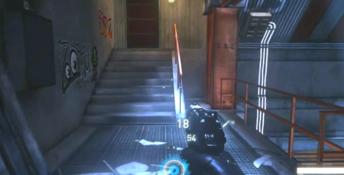
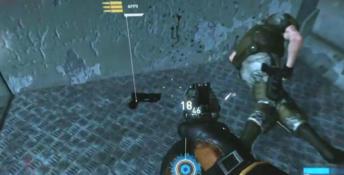
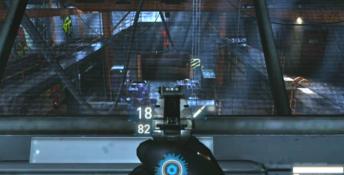
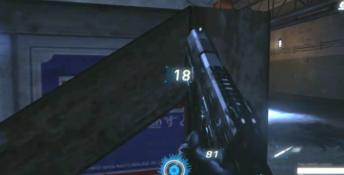
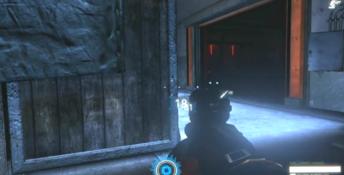
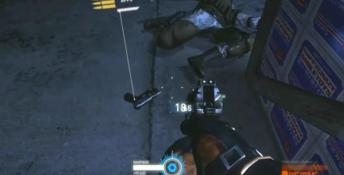
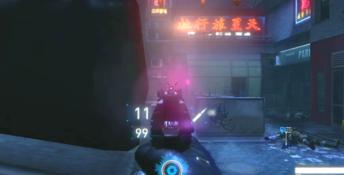
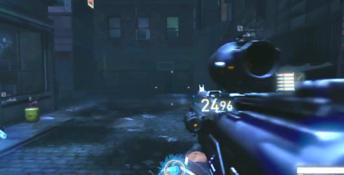
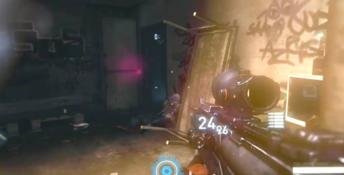
















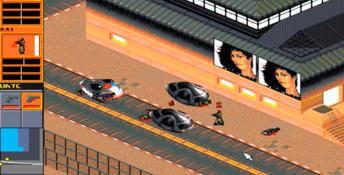
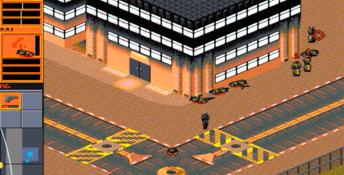
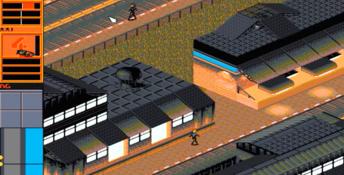
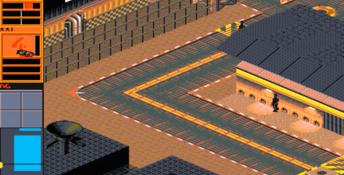
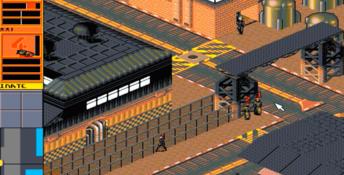























































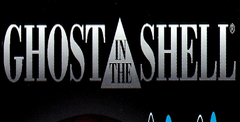 Ghost In The Shell
Ghost In The Shell
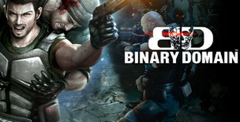 Binary Domain
Binary Domain
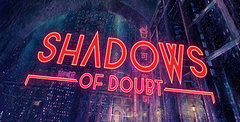 Shadows of Doubt
Shadows of Doubt
 Metal Gear Rising: Revengeance
Metal Gear Rising: Revengeance
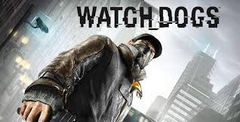 Watch Dogs
Watch Dogs
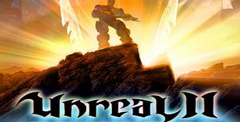 Unreal 2
Unreal 2
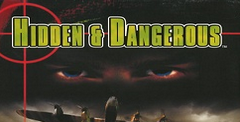 Hidden & Dangerous
Hidden & Dangerous
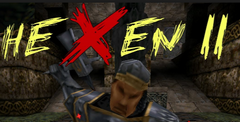 Hexen II
Hexen II
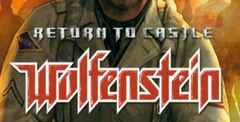 Return to Castle Wolfenstein
Return to Castle Wolfenstein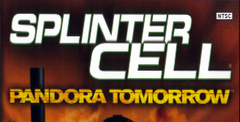 Tom Clancy's Splinter Cell: Pandora Tomorrow
Tom Clancy's Splinter Cell: Pandora Tomorrow
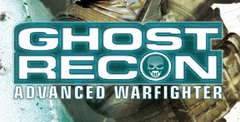 Tom Clancy's Ghost Recon: Advanced Warfighter
Tom Clancy's Ghost Recon: Advanced Warfighter
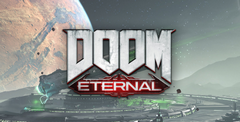 Doom Eternal
Doom Eternal
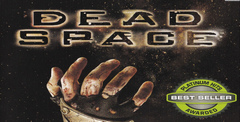 Dead Space
Dead Space